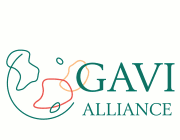 |
|
|
Immunization Focus - the GAVI quarterly |
|||
|
UPDATE - March 2002 En Français Healthcare waste management: there are solutions Mark Haltmeier, Annette Pruess, Franck Bouvet and Djibril Doucouré THE national immunization programme in Côte d’Ivoire expressed concern about poor practices in the management of wastes from healthcare activities. As a result, a field assessment was conducted in the country during July 2000. The aim was to identify essential needs and find potential sources of funding by attracting donor attention to a problem that is known to cause significant disease burden. To illustrate the kinds of problems we found and the solutions envisaged, here are some examples. Knowledge without means In a large hospital in Abidjan we were shown their incinerator, which had broken down some time ago due to the lack of funds to maintain it and a lack of know–how on how to repair this facility. Staff had therefore resolved to dumping the waste in an area of the compound and burning it on an open fire from time to time. The top management seemed both well trained and aware of the risks related to inadequate disposal of waste. Their main concern, however, was the lack of a sufficient operational budget at the hospital level; a situation which had obliged them to close down their radiology and diagnostic units, let alone deal with the healthcare waste properly. Means without sustainability Back in the late 1990s, a project financed by a bilateral agency had led to the construction of 14 well-designed and properly built small incinerators, of which only two were reported to be still operational. The main reason for this situation was the budgetary cuts made by the government in the health sector, which had led to significant reductions of personnel in hospitals. The first to be dismissed were the "least qualified", and once the only people who knew how to operate these incinerators were gone, the whole system stopped functioning properly. Means without knowledge In many remote areas, where the burial of waste in pits seems to be the most appropriate solution, we found that healthcare staff were quite well informed of the risks and managed the situation in an adequate manner. There were nevertheless some cases where the need for proper training was identified. In these cases, used syringes and other wastes were seen in the vicinity of the "disposal area" – that is, close to a heap of waste called the burial "pit", but also elsewhere on a compound. When knowledge and means – even modest – operate together A visit to a small primary health centre just outside Abidjan revealed a much better picture. This facility – which has just a few beds for day care only – had a simple but efficient way to safely dispose of its waste. A small incinerator within the compound was filled every evening by a trained worker with the waste of the day: two buckets on average. As all wastes were added to the sharps, the incinerator did not require any extra fuel to function properly. The centre is supported by an NGO which specifically addressed this issue with the manager, providing thus both the knowledge and the means necessary for adequate elimination of the wastes. Prerequisites for lasting improvements The assessment showed the importance of providing both knowledge (training and awareness) and means, financial and technical. These elements need to be part of a normative framework. Those interviewed who were responsible for healthcare admitted the lack of action plans, coherent health policy and regulations governing waste disposal. In our own view, external support is one extremely important factor for improving a system. This external help, which can be given by a local, national or international institution, could take the form of ongoing training. We believe that keeping people motivated and in touch with the most recent techniques is probably the key element to success. While concrete outside help is essential, we also urge realism. High-tech solutions alone will not succeed. We need to move at a human pace. During our field trips, we passed a number of dangerously overloaded trucks, hoping every time we passed one of these modern, swaying "elephants" that they would not tip over like the other trucks and trailers we saw lying in ditches. This reminded us of the monstrous problem of mismanaged healthcare wastes. Don’t believe that technical solutions can overcome every pitfall. We need to be careful not to overestimate our capacities, especially if the road is uneven. By doing things at a human pace, the chances of reaching the goal will increase, all the more so if we have knowledge of the "road" – that is, the socioeconomic and political context. The authors, on a WHO mission, surveyed a cross-section of the country’s waste management at two levels: first, geographically (from southeast to northwest), and second, at institutional level (from Ministry of Health and university hospital to village primary healthcare centres). The detailed report of the mission summarized some important limits to current waste management.There was a lack of plans of action. Safe waste management was not considered a priority; there was no formal legal framework; and a lack of financial resources limited appropriate measures. The full report is available at www.healthcarewaste.org UPDATE - Putting injection waste out of harm’s way - more Immunization Focus March 2002 - Contents |
|||
|
|
|
Copyright © GAVI |